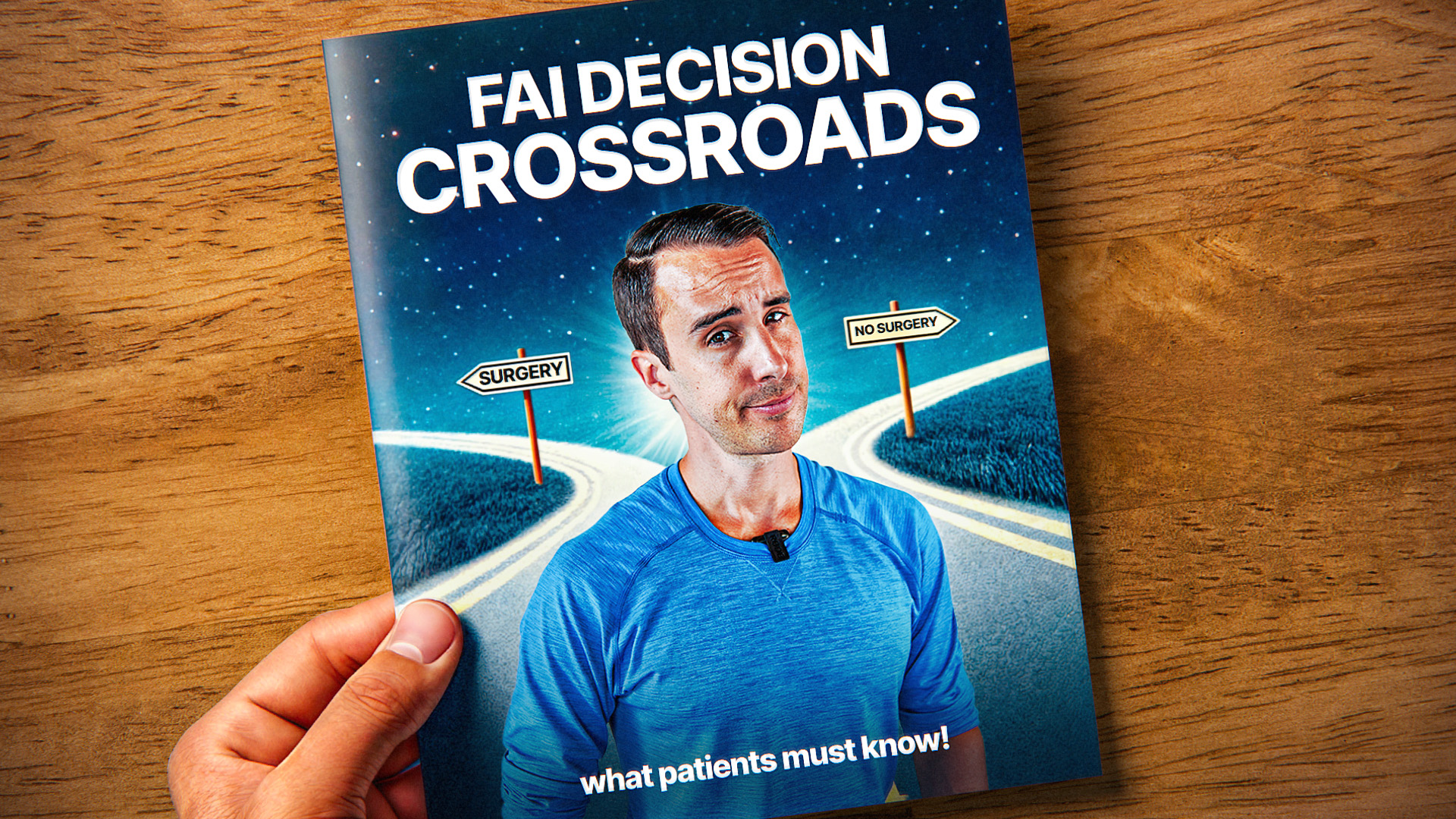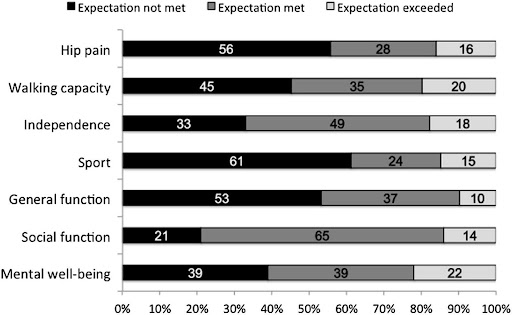FAI Surgery Exposed: The Unfiltered Truth About Success Rates
 By Shane Dowd, CES, CMP
By Shane Dowd, CES, CMP
Are you considering surgery for FAI hip impingement?
If so, after discovering what’s in these scientific studies, you might think twice.
In this article, we'll expose the truth, the whole truth, and nothing but the truth about FAI surgery success rates.
FAI surgery success rates
The success rate of Femoroacetabular Impingement (FAI) surgery can be a coin flip, with patients reporting being satisfied only 46% of the time. Some Surgeons Claim FAI Surgery Is Highly Effective. However, some surgeons still claim stats as high as 90% effectiveness for their hip surgery.
So what gives? Is it a coin flip? Or is it “90% success guaranteed?!” If you dig into the research, these “90% success rates” claims start to sound as preposterous as that classic scene from Anchorman:

NO, that DOESN’T make any sense. And, neither does a “90% success rate” on ANY intensive, invasive, bone-shaving surgery.
“Surgery Success” Scoring: What It Really Tells Us
So where do surgeons come up with these numbers? How do doctors and researchers decide if a surgery was “successful”? How do they score it? The key here is to look closely at the Harris Hip Score. The Harris Hip Score is a series of questions that get answered pre- and post-hip surgery.
For surgery to be considered successful, the patient needs to score at least 20 points higher post-op than they did pre-op. BUT, the way Doctors score things is sketchy at best!
For example, imagine you have a hip problem and you decide to have an operation to “fix” it.
Before the surgery, you had:
- a severe limp,
- severe pain,
- were walking with 2 crutches,
- and couldn’t put on your own socks and shoes.
1 year after the surgery, you now have:
- a moderate limp,
- moderate pain
- walk with only 1 crutch
- and can KIND OF put on your socks and shoes (with great difficulty).
Would YOU call that “smashingly successful surgery”? Well, according to the Harris Hip Score, you improved 20 points, so the surgery worked! Hooray!
To me, this is crazy…
I dunno about you, but if I’m going to spend between $10,000 - $45,000 on a hip surgery or hip replacement, and do the grueling, year-long, post-surgery physical therapy, you bet your ass I’m expecting something better than going from “severe pain to moderate pain” and “2 crutches to 1 crutch.”
But, according to the Harris Hip Score, that’s good enough.
Now you can start to see where some Doctors and surgeons can come up with a “90% success rate”. If the standards are this low, than I guess anyone can claim a “90% success rate” for their treatment. Having standards this low is like lowering the basketball hoop to eye level and then declaring yourself an NBA player because you can dunk…it just don’t make no sense.
So if the Harris Hip Score ISN’T what we should use to evaluate a surgery, what is a better measure of success?
Patient Satisfaction: A Better Measure of Success for FAI Surgery

If the Harris Hip Score isn't a reliable measure, what is? How about patient satisfaction? Duh!
One scientific paper titled "Patient Expectation and Satisfaction in Revision Total Hip Arthroplasty" from The Journal of Arthroplasty showed that: A year post-surgery, the Harris hip score (which we just learned is a crappy measuring stick ) had risen from a median of 45 to 77 points. AKA, a “successful surgery.”
However, if you asked the PATIENTS, only 55% of them felt that their expectations regarding walking ability had been met.
Another study closely examined patients' expectations of hip surgery and their satisfaction levels 12 months post-operation. AKA, what they were expecting and what they actually got. The study involved 86 patients, who succumbed to the surgery with the hope of having less pain, better function, or because they feared their condition was going to get worse.
The shocking revelation? 50% of these patients did NOT have their expectations met regarding hip pain, sports, and general physical capacity. Furthermore, 34-46% felt let down in areas like independence, mental well-being, and walking capacity.
When asked about the overall effectiveness of the hip surgery for FAI:
- 29% believed it was highly beneficial.
- 39% felt it offered some relief.
- 21% said it provided minimal help.
- 9% stated it didn't help at all.
- And 2% reported that their condition worsened post-surgery.
In simple terms, these figures reveal that:
- 1/3 of the patients felt the surgery helped.
- 1/3 felt it was OK
- 1/3 felt it barely helped or made things worse.
The Expectation Graph
The following graph, which comes directly from the study, shows all the disappointing details:

As you can see, patient expectations are nowhere near the “90% success rate” that some surgeons claim.
FAI Surgery: The Bottom Line
So, what's the bottom line? The unfiltered truth about FAI surgery is that it’s more like a coin flip than a slam dunk / home-run. If you’re into flipping coins, you might get lucky, but there's also a chance you won't.
Non-surgical Hope for Hip Pain Sufferers
But don't lose hope just yet. There are non-surgical options that can help alleviate hip pain for a fraction of the cost of surgery without anyone cutting you open and hacking away at your bones. One of these options is our “do-it-yourself” Hip Fix program. This methodology has helped thousands of students since 2015 and it’s 100% money-back guaranteed (unlike surgery), so, you’ve got nothing to lose.
If you want an even higher level of 1-on-1 support, from someone who’s beaten FAI without surgery, schedule a 1-on-1 call with me at gotrom.com/vip to see if you qualify for our 1-on-1 VIP mentorship program.
I hope you enjoyed today’s video, and please remember, there’s always hope, and you’re always just 1-step away from building or re-building your perfect body.
About The Author











